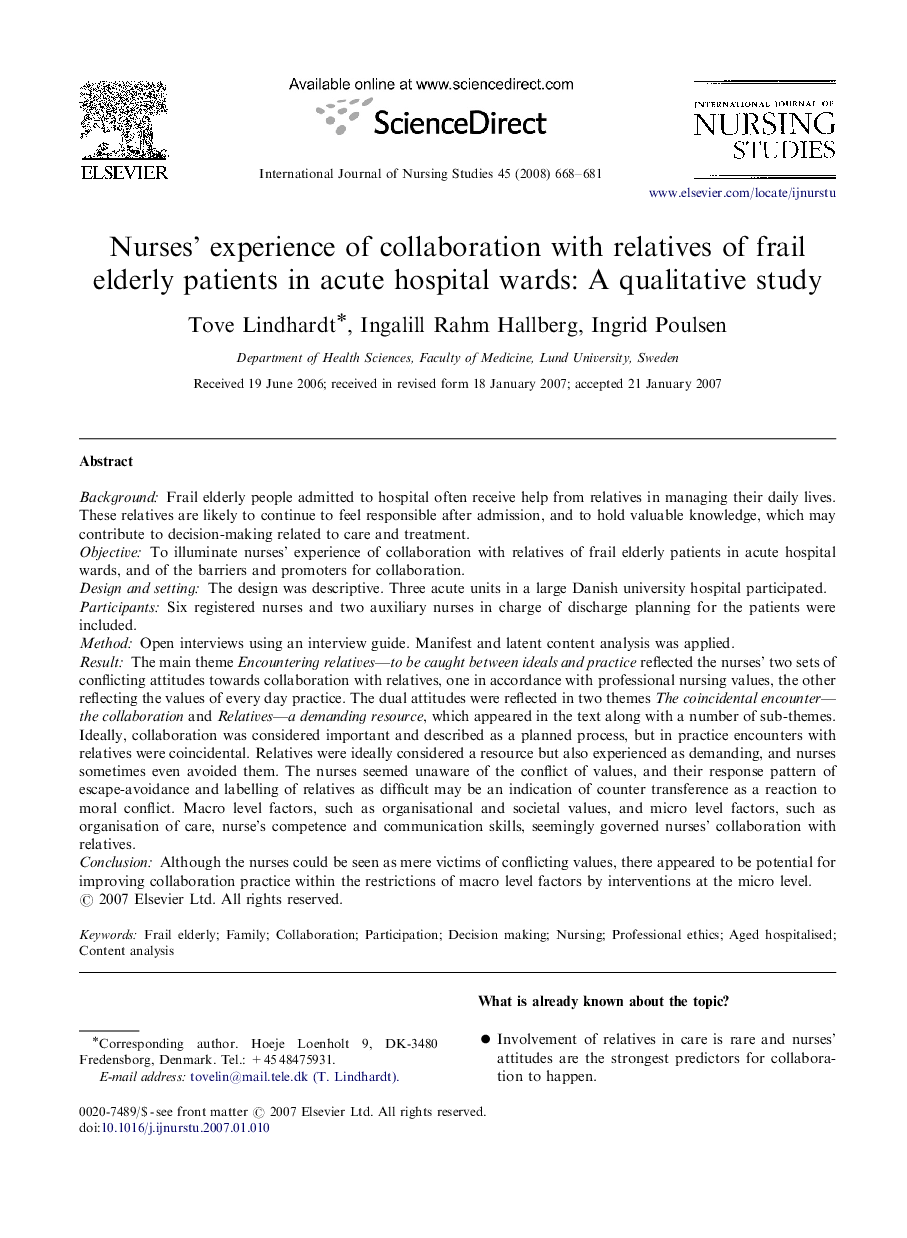| Article ID | Journal | Published Year | Pages | File Type |
|---|---|---|---|---|
| 1077828 | International Journal of Nursing Studies | 2008 | 14 Pages |
BackgroundFrail elderly people admitted to hospital often receive help from relatives in managing their daily lives. These relatives are likely to continue to feel responsible after admission, and to hold valuable knowledge, which may contribute to decision-making related to care and treatment.ObjectiveTo illuminate nurses’ experience of collaboration with relatives of frail elderly patients in acute hospital wards, and of the barriers and promoters for collaboration.Design and settingThe design was descriptive. Three acute units in a large Danish university hospital participated.ParticipantsSix registered nurses and two auxiliary nurses in charge of discharge planning for the patients were included.MethodOpen interviews using an interview guide. Manifest and latent content analysis was applied.ResultThe main theme Encountering relatives—to be caught between ideals and practice reflected the nurses’ two sets of conflicting attitudes towards collaboration with relatives, one in accordance with professional nursing values, the other reflecting the values of every day practice. The dual attitudes were reflected in two themes The coincidental encounter—the collaboration and Relatives—a demanding resource, which appeared in the text along with a number of sub-themes. Ideally, collaboration was considered important and described as a planned process, but in practice encounters with relatives were coincidental. Relatives were ideally considered a resource but also experienced as demanding, and nurses sometimes even avoided them. The nurses seemed unaware of the conflict of values, and their response pattern of escape-avoidance and labelling of relatives as difficult may be an indication of counter transference as a reaction to moral conflict. Macro level factors, such as organisational and societal values, and micro level factors, such as organisation of care, nurse's competence and communication skills, seemingly governed nurses’ collaboration with relatives.ConclusionAlthough the nurses could be seen as mere victims of conflicting values, there appeared to be potential for improving collaboration practice within the restrictions of macro level factors by interventions at the micro level.
